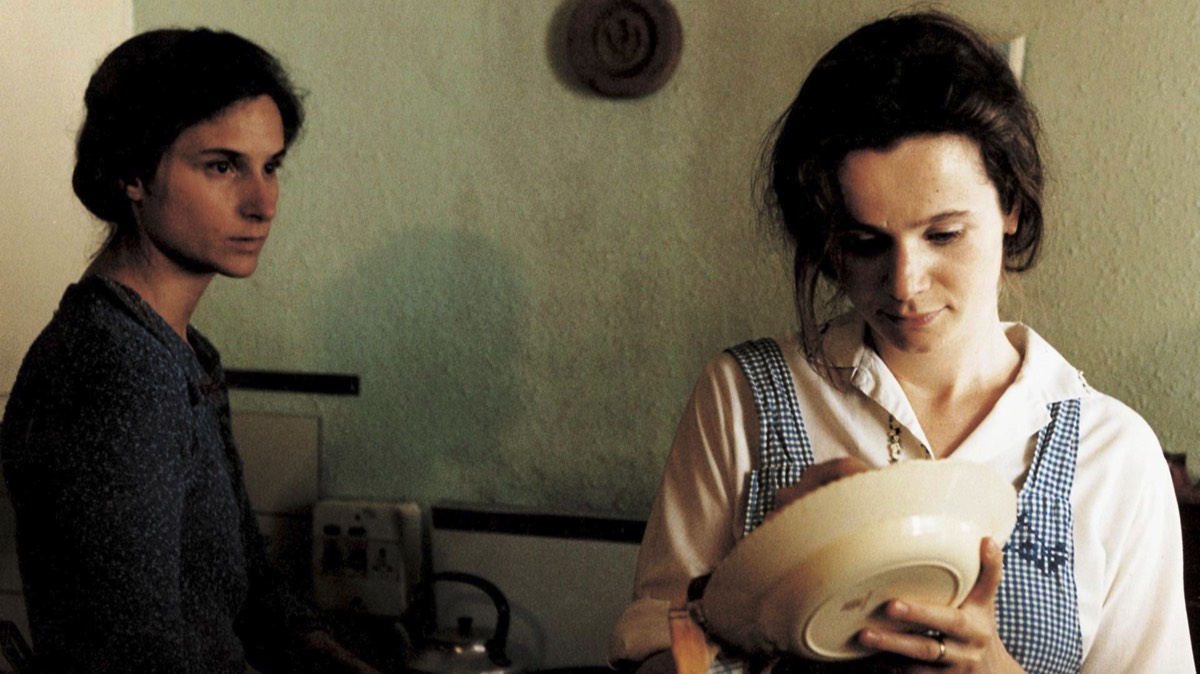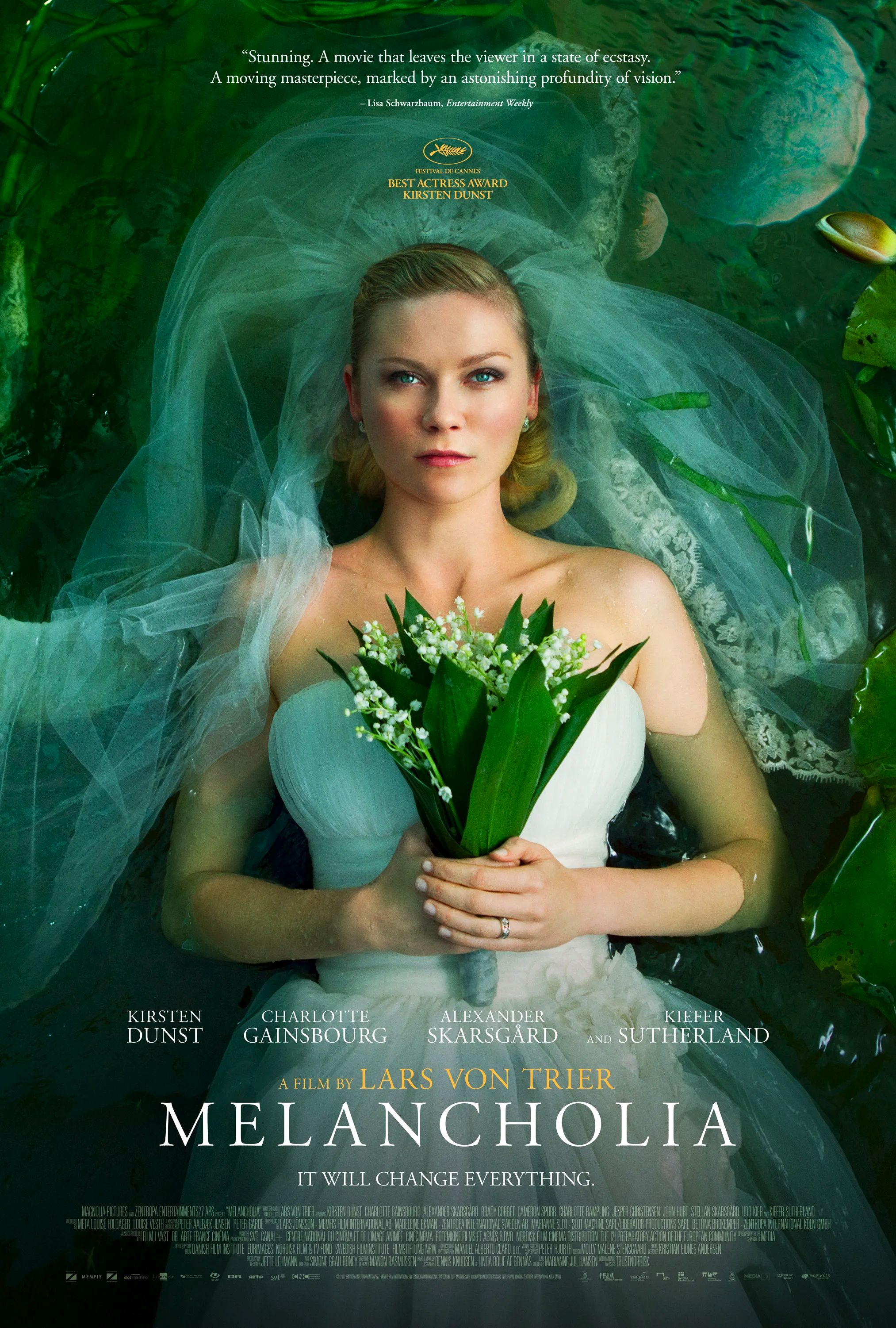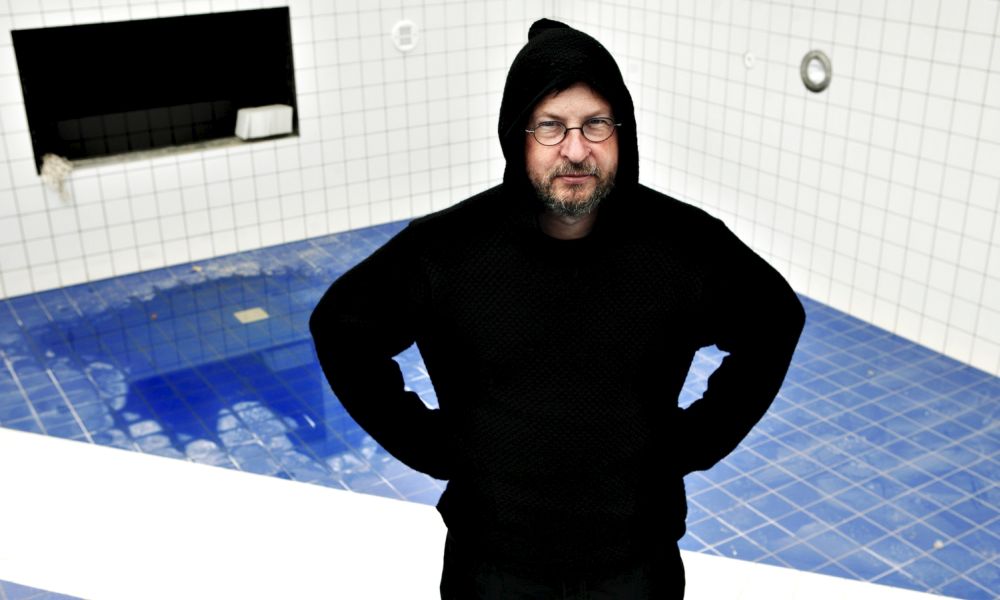"A leading figure in European avant-garde, Danish filmmaker Lars von Trier is happy when being as reviled as admired. A flamboyant figure, his films are acts of provocation, alternately exhilarating and dismaying, and unmatched in their bold experimentation, stylistic range, conceptual rigor, and disturbing intensity." - Linda Badley (501 Movie Directors, 2007)
Lars von Trier
Director / Screenwriter
(1956- ) Born April 30, Copenhagen, Denmark
Top 250 Directors / 21st Century's Top 100 Directors
(1956- ) Born April 30, Copenhagen, Denmark
Top 250 Directors / 21st Century's Top 100 Directors
Key Production Countries: Denmark, France, Germany, Sweden, Italy, Netherlands, UK, Norway, Finland, Iceland
Key Genres: Drama, Melodrama, Erotic Drama, Horror, Supernatural Horror, Avant-garde/Experimental, Mystery, Science Fiction, Period Film, Psychological Drama
Key Collaborators: Molly Marlene Stensgaard (Editor), Udo Kier (Character Actor), Jean-Marc Barr (Leading Character Actor), Vibeke Windeløv (Producer), Stellan Skarsgard (Character Actor), Charlotte Gainsbourg (Leading Actress), Jens Albinus (Character Actor), Willem Dafoe (Character Actor), Niels Vørsel (Screenwriter), Tomas Gislason (Screenwriter), Meta Louise Foldager (Producer), Louise Vesth (Producer)
Key Genres: Drama, Melodrama, Erotic Drama, Horror, Supernatural Horror, Avant-garde/Experimental, Mystery, Science Fiction, Period Film, Psychological Drama
Key Collaborators: Molly Marlene Stensgaard (Editor), Udo Kier (Character Actor), Jean-Marc Barr (Leading Character Actor), Vibeke Windeløv (Producer), Stellan Skarsgard (Character Actor), Charlotte Gainsbourg (Leading Actress), Jens Albinus (Character Actor), Willem Dafoe (Character Actor), Niels Vørsel (Screenwriter), Tomas Gislason (Screenwriter), Meta Louise Foldager (Producer), Louise Vesth (Producer)
"With a back-story (almost) as singular as his films, Danish director Lars von Trier was one of the most exceptional filmmakers to burst onto the international film scene in the 1990s. Unapologetically confident in his artistry and an unabashed provocateur, von Trier could kick up a fuss about his behavior, but his stylistic brio, extreme narratives, and ability with actors prevented such films as Europa (1991), The Kingdom (1994), Breaking the Waves (1996), and Dancer in the Dark (2000) from being eclipsed by their creator. Even as he openly sought a larger audience by making films in English, von Trier's success helped resurrect Scandinavian cinema's international prominence; his intense fear of flying ensured he'd never "go Hollywood." - Lucia Bozzola (Allmovie)
"A natural provocateur, Lars Trier added the "von" to his name at the age of 20, less as a homage to Stroheim or Sternberg than as an act of effrontery and mischief; this reportedly deeply neurotic, phobic individual is also a daring exhibitionist. This propensity for pushing his ego to the fore has made von Trier a controversial figure, but also, with Pedro Almodóvar and Emir Kusturica one of the three most acclaimed European filmmakers of his generation... Is he an arch manipulator and a charlatan? Von Trier has certainly been guilty of the first charge, but his probing, deterministic view of man's inhumanity to man has an appropriate moral severity, and his bold, experimental aesthetic impulses are undoubtedly a shot in the arm for the European art film tradition." - Tom Charity (The Rough Guide to Film, 2007)

Breaking the Waves (1996)
"Von Trier is an eccentric, provocative film-maker with a penchant for extreme stylistic strategies... His early films are overblown attempts to create a dazzlingly strange, sinister world, but in the more recent Breaking the Waves and The Idiots, simpler narratives and closer attention to individual characters suggest there is perhaps a major film-maker behind the emphatic irony and insistent, bludgeoning technique. With conviction, he may achieve greatness." - Geoff Andrew (The Director's Vision, 1999)
"The most famous Danish director since Carl Dreyer, Lars von Trier has as many fans as he has detractors. However, both would agree that hue is an auteur with a strong personality." - Ronald Bergan (Film - Eyewitness Companions, 2006)
"Have we all become so “Sithian” in our absolutes that we are now incapable of understanding the figurative? Incapable of considering multiple points of view? Have the fundamentalist terrorists reduced us to a jingoistic tribalism of our own? I see Lars von Trier as a modern-day Dostoevsky. Like the Russian novelist, he may be reactionary, neurotic and anti-modern, but he presents us with an artistic canvas of dialectic complexity capable of resonating in interesting ways with mature and educated minds." - Thomas Beltzer (Senses of Cinema, 2002)
"It's von Trier's misfortune that he emerged as a filmmaker at precisely the point that the old cult of the European art-house auteur was entering its death throes. By the time his films started being shown at the major European festivals in the late 1980s and early 1990s, the veneration once accorded to Andrei Tarkovsky, Michelangelo Antonioni, Bernardo Bertolucci, Ingmar Bergman et al, was fast fading. Von Trier has just about managed to keep alive the idea of the big-name European auteur, but has done so partly by whipping up scandal. He is the arch provocateur. With every new movie, there's bound to be a talking point: the genital mutilation in Antichrist, the computer-operated camera in The Boss of It All, the anti-Americanism of Dogville, the spats with Bjork during the making of Dancer in the Dark, the Dogme shock tactics in The Idiots etc, etc. His artistry is overlooked as he continues to be categorised as the ageing enfant terrible of European cinema." - Geoffrey Macnab (The Independent, 2011)
"I think it's important that we all try to give something to this medium, instead of just thinking about what is the most efficient way of telling a story or making an audience stay in a cinema." - Lars von Trier
Selected Filmography
{{row.titlelong}}
GF Greatest Films ranking (★ Top 1000 ● Top 2500)
21C 21st Century ranking (☆ Top 1000)
T TSPDT N 1,000 Noir Films S Martin Scorsese
21C 21st Century ranking (☆ Top 1000)
T TSPDT N 1,000 Noir Films S Martin Scorsese
Lars von Trier / Favourite Films
Arabian Nights (1974) Pier Paolo Pasolini, Barry Lyndon (1975) Stanley Kubrick, Billy Liar (1963) John Schlesinger, The Canterbury Tales (1971) Pier Paolo Pasolini, Gertrud (1964) Carl Theodor Dreyer, Good and Evil (1975) Jørgen Leth, In Search of the Castaways (1962) Robert Stevenson, India Song (1974) Marguerite Duras, The Lady from Shanghai (1948) Orson Welles, Mirror (1974) Andrei Tarkovsky, The Night Porter (1973) Liliana Cavani, La Notte (1961) Michelangelo Antonioni, The Perfect Human (1967) Jørgen Leth, Providence (1977) Alain Resnais, Singin' in the Rain (1952) Stanley Donen & Gene Kelly, Smiles of a Summer Night (1955) Ingmar Bergman, Through a Glass Darkly (1962) Ingmar Bergmann, Touch of Evil (1958) Orson Welles, Voyage in Italy (1953) Roberto Rossellini, West Side Story (1961) Robert Wise & Jerome Robbins, Wild Strawberries (1957) Ingmar Bergman. Source: Trier on von Trier (2005)
Arabian Nights (1974) Pier Paolo Pasolini, Barry Lyndon (1975) Stanley Kubrick, Billy Liar (1963) John Schlesinger, The Canterbury Tales (1971) Pier Paolo Pasolini, Gertrud (1964) Carl Theodor Dreyer, Good and Evil (1975) Jørgen Leth, In Search of the Castaways (1962) Robert Stevenson, India Song (1974) Marguerite Duras, The Lady from Shanghai (1948) Orson Welles, Mirror (1974) Andrei Tarkovsky, The Night Porter (1973) Liliana Cavani, La Notte (1961) Michelangelo Antonioni, The Perfect Human (1967) Jørgen Leth, Providence (1977) Alain Resnais, Singin' in the Rain (1952) Stanley Donen & Gene Kelly, Smiles of a Summer Night (1955) Ingmar Bergman, Through a Glass Darkly (1962) Ingmar Bergmann, Touch of Evil (1958) Orson Welles, Voyage in Italy (1953) Roberto Rossellini, West Side Story (1961) Robert Wise & Jerome Robbins, Wild Strawberries (1957) Ingmar Bergman. Source: Trier on von Trier (2005)
Lars von Trier / Fan Club
Anton Dolin, Sukhdev Sandhu, J. Hoberman, Ari Aster, Isamu Hirabayashi, Mani Haghighi, Felix van Groeningen, Nigel Andrews, Myroslav Slaboshpytskyi, Jean-Michel Frodon, Sean Baker, Van Papadopoulos.
Anton Dolin, Sukhdev Sandhu, J. Hoberman, Ari Aster, Isamu Hirabayashi, Mani Haghighi, Felix van Groeningen, Nigel Andrews, Myroslav Slaboshpytskyi, Jean-Michel Frodon, Sean Baker, Van Papadopoulos.
"Fan Club"
These film critics/filmmakers have, on multiple occasions, selected this director’s work within film ballots/lists that they have submitted.
These film critics/filmmakers have, on multiple occasions, selected this director’s work within film ballots/lists that they have submitted.


